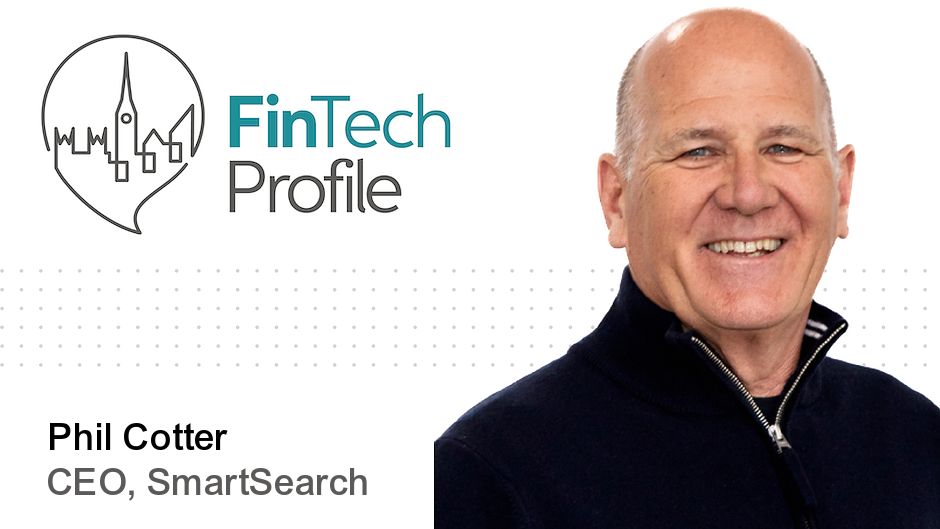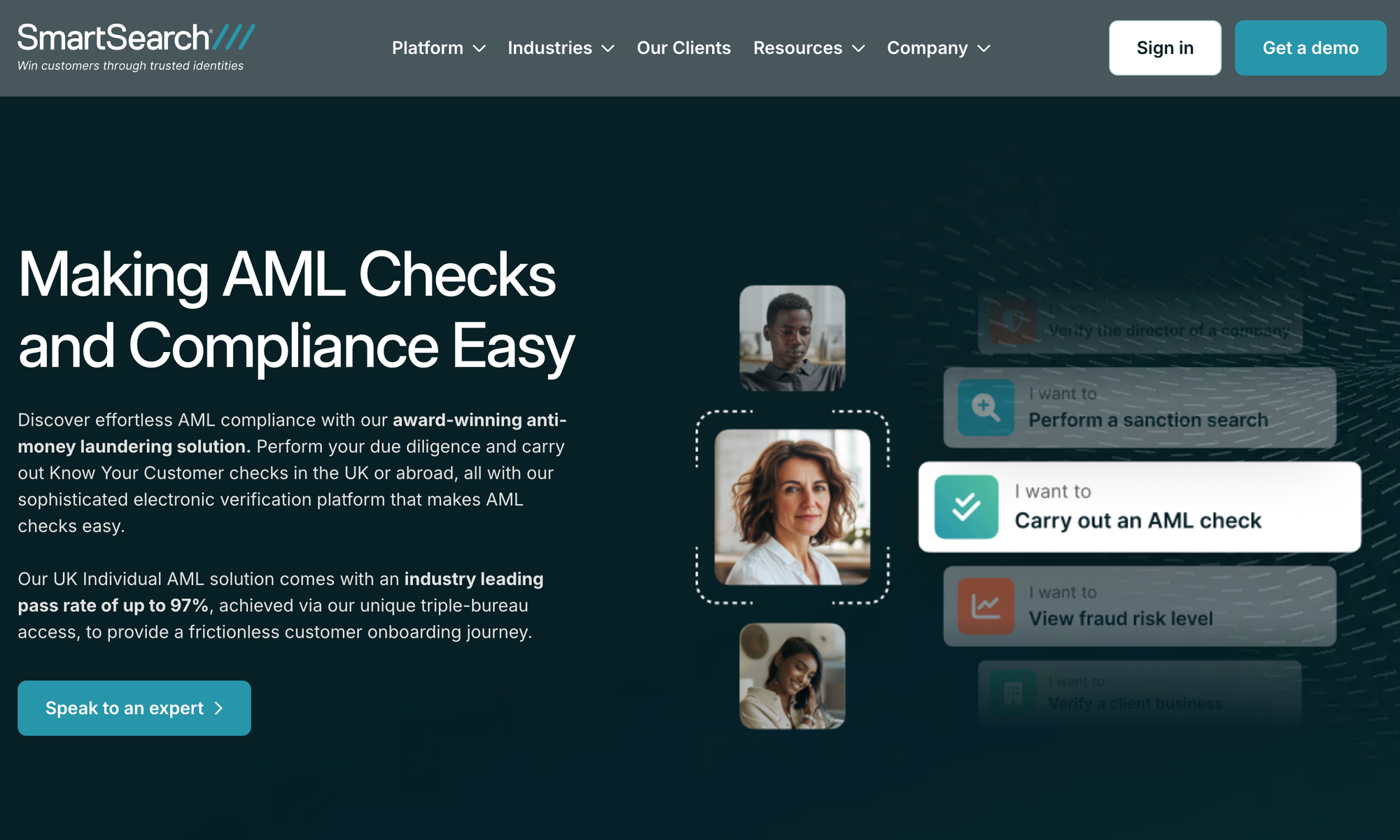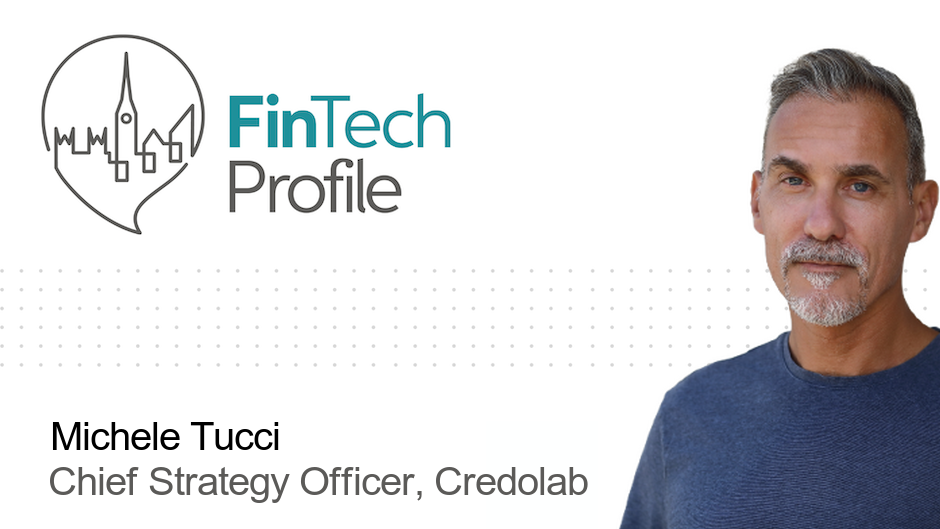Phil Cotter, Chief Executive Officer, SmartSearch

Today we're meeting Phil Cotter, Chief Executive Officer at SmartSearch. They specialise in digital compliance and anti-money laundering (AML) solutions.
Over to you Phil - my questions are in bold:
Who are you and what's your background?
Believe it or not, despite now having more than 40 years of experience in banking, risk and data analytics, I actually studied Dentistry at the University of Liverpool. Despite my educational background, I began my career working for a UK finance company as a trainee branch manager, working my way up through regional and national sales management positions to become an Operations Manager in one of the first call centres opened in the UK. It was in this role that I first became interested in how data, analytics and software can significantly improve risk management, compliance & customer service.
I then joined the company that had built the automated credit decisioning solution we were using in the call centres. That company, CCN, would later become Experian, where I spent 15 years as the company grew from an incubated business inside the mail order company, Great Universal Stores, to becoming publicly listed.
During that time, I held a number of roles including leading a team of 300 developers through 'Y2K', eventually becoming Managing Director of the Credit Services Division in the UK. I was involved in launching some of the first fraud and identity solutions in the UK during this time, helping to protect against the devastating impact that fraud can have on individuals and businesses of all sizes. When I left Experian in 2011, the company had grown to $5bn in revenues employing over 15,000 people: a FinTech Unicorn before the term had been invented!
I then ran my own consulting business for a number of years before joining Thomson Reuters, where I became Managing Director of the Risk business, providing solutions to support customers in improving their governance, risk and compliance practices. This business included World-Check, a market leading provider of data & analytics to help customers screen for PEPs, Sanctions and other financial crime related risks. This business became part of Refinitiv, which was subsequently acquired by the London Stock Exchange Group (LSEG) in 2020. During the 10 years I spent at LSEG, I shifted the focus of the business and, through organic investment and acquisition of two identity businesses, turned LSEG into a leading player in KYC and AML. I also learnt about the terrible impact that crimes such as drug trafficking, human slavery and forced labour that lead to money laundering have on the most vulnerable in society.
What is your job title and what are your general responsibilities?
I am the Chief Executive Officer at SmartSearch, the UK's leading provider of digital compliance and anti-money laundering (AML) solutions. The vision for our business is to "Win customers through trusted identities", helping our customers to really know who they are doing business with and allow them to grow their business with this confidence. Together with the leadership team at SmartSearch, my role is to define and execute our strategy, ensuring we continue to provide what our customers need to meet their regulatory obligations, helping in turn to grow our own business.
Can you give us an overview of your business?
Amidst an ever-changing regulatory landscape, it can be hard for businesses to keep up with all of the new and emerging rules that are implemented to help fight financial crime. In a recent independent survey conducted by SmartSearch, an overwhelming majority (89%) of businesses said they are already finding current regulations challenging. Worryingly, 73% lack confidence in their ability to stay compliant, with almost a third (30%) expecting things to worsen in the next year.

SmartSearch helps businesses fulfil their AML, Customer Due Diligence (CDD), and Know Your Customer (KYC) compliance obligations under financial crime regulation in a systematic and efficient way. Our comprehensive suite of solutions enables our customers to verify information about their own customers – whether an individual or a business – identify any potential financial crime related risks and reduce the time and effort to onboard new customers. We also provide solutions that enable our customers to monitor the ongoing risk of the individuals and companies they do business with. Our platform provides access to trusted data and capabilities, such as identity document verification, to reduce the time and effort it takes to onboard new customers. The solution supports both face to face and digital interactions and it creates an audit log of actions taken and data used in the process. This log of actions can be used to demonstrate to regulators that the company has robust processes in place to meet its regulatory obligations.
Tell us how you are funded?
Founded in 2011 as a self-funded RegTech startup, in a little over a decade, SmartSearch has grown to become a key player in the digital compliance revolution.
Having displayed consistent growth and profitability, last year SmartSearch received significant equity investment from Triple Private Equity. With this investment, Triple Private Equity now has a majority share in the business and is working alongside myself and the wider executive team to supercharge SmartSearch's next stage of growth.
What's the origin story? Why did you start the company? To solve what problems?
SmartSearch was founded by Martin Cheek and John Dobson in 2011. Though even before this, members of the SmartSearch team were responsible for creating one of the very first electronic AML services back in the early 2000s.
At that time, regulatory bodies did not accept electronic identification as a viable alternative to manual checks of physical documents such as passports, driving licenses and utility bills. Since then, the world has undergone rapid and all-encompassing digitalisation.
Businesses began to rapidly adopt digital technologies to drive efficiencies and growth, with bad actors hot on their heels. With financial criminals using digital technology to conceal their true identities and launder money in new, more sophisticated ways, existing regulation tightened, and new rules were introduced to combat fraud-related crime.
As the compliance burden grew, businesses realised the value of adopting digital identity verification solutions to carry out the necessary checks, in place of time and resource intensive manual processes. Without doing so, it was making it virtually impossible for businesses to keep up with an increasingly complex regulatory landscape while identifying increasingly sophisticated fraud techniques.
SmartSearch was founded, and continues to operate today, to help businesses with this very challenge. We make it easy for businesses to comply with their AML, KYC and KYB obligations, and make pinpointing concealed or falsified identities amid soaring financial crime reliable, quick and efficient.
Who are your target customers? What's your revenue model?
Where the compliance burden is being felt most is where you'll find SmartSearch. We're currently trusted by more than 7,000 client firms and 60,000 users across a diverse range of regulated markets including legal, accountancy, property and financial services. Our customer base includes more than 1,000 property firms, half of the top 100 accountancy firms and a third of the top 200 legal firms. We are a SaaS business with a commercial model that is common with many other SaaS business.
If you had a magic wand, what one thing would you change in the banking and/or FinTech sector?
If I had a magic wand and could rid the banking and fintech sectors of financial crime, I definitely would. From my time working in banks and in the risk ecosystem, I've witnessed the devastating impact that bad actors who have faked or forged their identity can have on the lives of individuals and businesses alike. From the human impact of terrorist financing, funding the drugs trade or human trafficking to placing businesses in the terrifying position of reputational damage and hefty fines for non-compliance and even removing much-needed money from the taxation purse – money laundering has countless victims. Sadly, we do not live in a world where I have a magic wand, and financial crime only continues to rise. Accepting the realities of the current landscape we face, while I cannot wipe out fraud with a wave of my wand, SmartSearch is able to help businesses protect themselves and their customers from the threats that financial crime poses.
What is your message for the larger players in the Financial Services marketplace?
Having worked in large global corporations, it is easy to overlook the innovation that small companies bring to addressing challenges that companies face and their ability to support your business. I've always strived to stay curious and to learn through smaller businesses, sometimes by working in partnership with them, to understand how they are solving customers problems.
Where do you get your Financial Services/FinTech industry news from?
I like to keep up to date with both trade and national or business-level media for different reasons. Trade media publications are more niche in their editorial focus, with more granular reporting on regulatory changes, competitor moves and innovations specific to a certain sector. I'm a big fan of titles with weekly news roundups or community blogs as they provide a great channel for me to keep up with industry news and views.
On the other hand, national and business media offer a macro perspective on business developments, reporting on challenges or trends that are impacting several industries, such as financial crime or fraud more broadly.
I think it's really important to read a mix of both to ensure I'm plugged into the specific trends, issues and market forces affecting our key vertical industries as well as getting the bigger picture on finance, technology and business developments.
Can you list 3 people you rate from the FinTech and/or Financial Services sector that we should be following on LinkedIn, and why?
- Marcel van Oost – I try to keep up with his daily roundups of the latest fintech industry and news updates as they're a great way to get a download of what's happening in the industry.
- Rachel Wolcott & Lindsey Rogerson – two of my fellow ex-Reuters colleagues, formerly Regulatory Intelligence editors, that have recently set up their own compliance focussed trade media publication, Compliance Corylated. I like to check out their stories on LinkedIn.
What FinTech services (and/or apps) do you personally use?
I'm not always an early adopter of apps but I do use several banking apps, including Monzo and Zempler. Zempler is a business banking challenger which I used when I was running my own business before joining SmartSearch. Of course, like many people I have a plethora of additional apps that allow me to book train tickets, arrange taxis, catch up on the news and even tell me how much heating oil I have left in the tank. I think we can all agree that this is a big improvement on the previous method of putting a stick in the tank every now and again and trying to guess how much oil is left…
What's the best new FinTech product or service you've seen recently?
The roll out of Digital Identity wallets are very exciting. The ability to store and manage all digital identification data, credentials and other personal and financial information in a singular location is an extremely attractive prospect – especially for the RegTech sector.
In an increasingly digital economy, the reliance on physical documents for ID verification is no longer fit for purpose. They create additional hurdles for consumers and businesses alike, while also being less secure than digital counterparts. Digital ID wallets, along with electronic verification technology, will make it much harder for criminals to use forged documents or false or stolen identities. The wallets will also speed up the onboarding process as they remove the need for manual checks of physical documents. The first trials of the GOV.UK Wallet are expected to begin later this year and I'll be eagerly watching how things go.
Finally, let's talk predictions. What trends do you think are going to define the next few years in the FinTech sector?
I'd say there are three key trends that are set to define the next few years for the FinTech sector – AI as both a threat and a tool, balancing privacy and transparency, and the rise of cryptocurrencies.
AI is increasingly being harnessed to streamline customer verification, accelerate due diligence, and strengthen anti-fraud measures. It is also being used by fraudsters to conduct financial crime in an increasingly sophisticated and convincing way. One of the most notable risks of AI comes from deepfake technology. As the sophistication of this technology increases, FinTechs will need to deploy equally advanced tools to stay ahead of cybercriminals and ensure they comply with AML, KYC and KYB regulation.
For privacy and transparency, AML regulations require fintechs to collect and analyse personal and financial data to identify potential fraud risk. However, privacy laws, particularly the General Data Protection Regulation (GDPR), restrict the collection and processing of personal data unless explicit consent is obtained. To manage this complexity, regulators, firms, and users must work together to develop a more unified approach and harness solutions such as third-party verification, secure data hosting, and clear privacy policies.
The crypto market is already one of the most targeted sectors when it comes to money laundering and financial crime. As crypto value and usage continues to increase, it will become an even more significant challenge for FinTechs in the coming years. The crypto sector is still largely unregulated, and so the key to fraud prevention will be to go above and beyond current legislation. This requires FinTechs to have robust AML and anti-fraud checks in place, including stringent verification procedures, robust financial checks, water-tight data hosting and real-time monitoring.
Proactively addressing issues relating to AI, privacy, and cryptocurrency will enable the FinTech sector to stay ahead of the curve. Those that fail to act may find themselves exposed to heightened risks and even regulatory penalties.
Thank you very much, Phil!
Read more about Phil on LinkedIn and find out more about SmartSearch at www.smartsearch.com.




